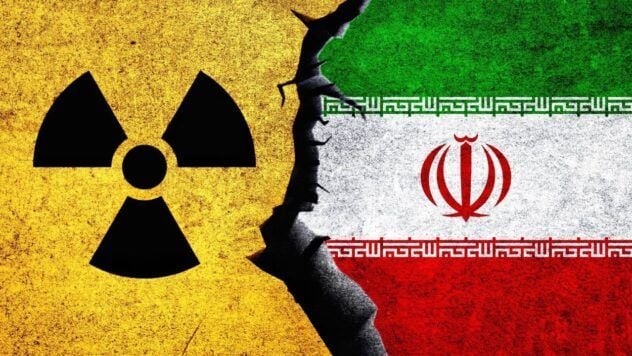
After Israeli airstrikes destroyed parts of Iran's military infrastructure, Tehran will find it difficult to carry out its threats against the United States. Any response could drag the country into a full-scale confrontation.
Iran's ability to retaliate against the US is limited
Iran tried to deter Donald Trump from joining Israel's military campaign by threatening a serious response. But today, Tehran's ability to retaliate against the United States is significantly limited and carries the risk of major escalation.
Despite Iranian officials' loud statements about possible attacks on American ships and military bases, some of the arsenal that Tehran relied on as a deterrent was destroyed by Israeli airstrikes.
Now watching
The attacks have primarily targeted long-range ballistic missile launchers, but Iran still maintains a powerful arsenal of shorter-range missiles and combat drones.
The US has prepared for a possible attack
The United States has taken precautions, deploying naval forces in the region and beefing up air defenses to make it harder for Iran to launch an attack.
Donald Trump has said that the United States may not limit itself to defense if Iran attacks. According to him, potential targets of American strikes could include Iran's Supreme Leader Ayatollah Ali Khamenei himself.
Iran's allies suffer losses
Tehran’s other key instrument of influence, a network of allied groups in the region known as the “axis of resistance,” has also suffered losses. The Lebanese terrorist organization Hezbollah’s missile arsenal was largely destroyed by Israeli air power last year. In April, Israel struck a Shiite militia weapons depot in southern Beirut.
In neighboring Iraq, the Iranian group Kataib Hezbollah has threatened to attack “American interests” in retaliation for Washington’s support for Israel. One of the group’s commanders, Abu Ali al-Askari, told CNN that U.S. bases in the region would “become duck-shooting areas.”
The United States has at least 19 military installations in the Middle East, of which eight are permanent.
Another Iranian ally is the Houthis in Yemen, who agreed to a ceasefire with the US in May but have warned that they will consider the truce broken if Trump decides to attack Iran.
In that case, they could resume attacks on American ships in the Red Sea, which has happened in the past with mixed results.
However, the involvement of any of these allied groups in the conflict would most likely provoke a harsh response from the United States, which has been preparing for such a scenario for a long time.
Iran May Attack Shipping
Iran has another lever of pressure: attacks on shipping. In extreme cases, it could resort to mining, sinking ships, or threatening to close the Strait of Hormuz, a strategically important shipping route through which more than a fifth of the world’s oil supplies (about 20 million barrels) and much of its liquefied natural gas pass each day. In some places, the strait is only 55 km wide.
Iranian politicians have already called for Hormuz to be closed, a move that could hit the United States hard, causing oil prices to spike and inflation to rise ahead of the congressional elections.
But it also poses a threat to the Islamic Republic itself: Its own oil exports follow the same route. And the intervention could draw Gulf states into the conflict, which, despite their criticism of Israel's actions, may be forced to defend their own economic interests.
Given the high risks, Tehran may decide not to respond immediately, but to postpone retaliation indefinitely. Iran has a history of delaying responses to external attacks. Foreign Minister Seyyed Abbas Araqchi hinted at such a scenario, noting that Trump’s decision “will have eternal consequences.”
Pentagon Says Iran's Nuclear Program Has Been Destroyed
US Defense Secretary Pete Hagseth described the airstrikes on Iran as “precise, powerful and well-targeted” during a Pentagon briefing.
According to him, the targets of the attack were exclusively Iran's nuclear facilities, without causing harm to the military or civilian population.
“Last night, at the direction of President Trump, U.S. Central Command conducted precision airstrikes on three nuclear facilities in Iran in an attempt to destroy or severely impair that country's nuclear program,” Hagseth said.
The head of the Pentagon emphasized that the mission was entirely aimed at destroying the infrastructure that could be used to create nuclear weapons.
“It was a stunning and devastating success. We devastated Iran's nuclear program,” Hegseth concluded.
He assured that the United States does not want to wage a protracted war, but stressed that “the capabilities of the American military are limitless.”
The Pentagon chief warned Tehran against retaliating, noting that “it would be a very bad idea for Iran or its proxies to try to attack American forces.”

